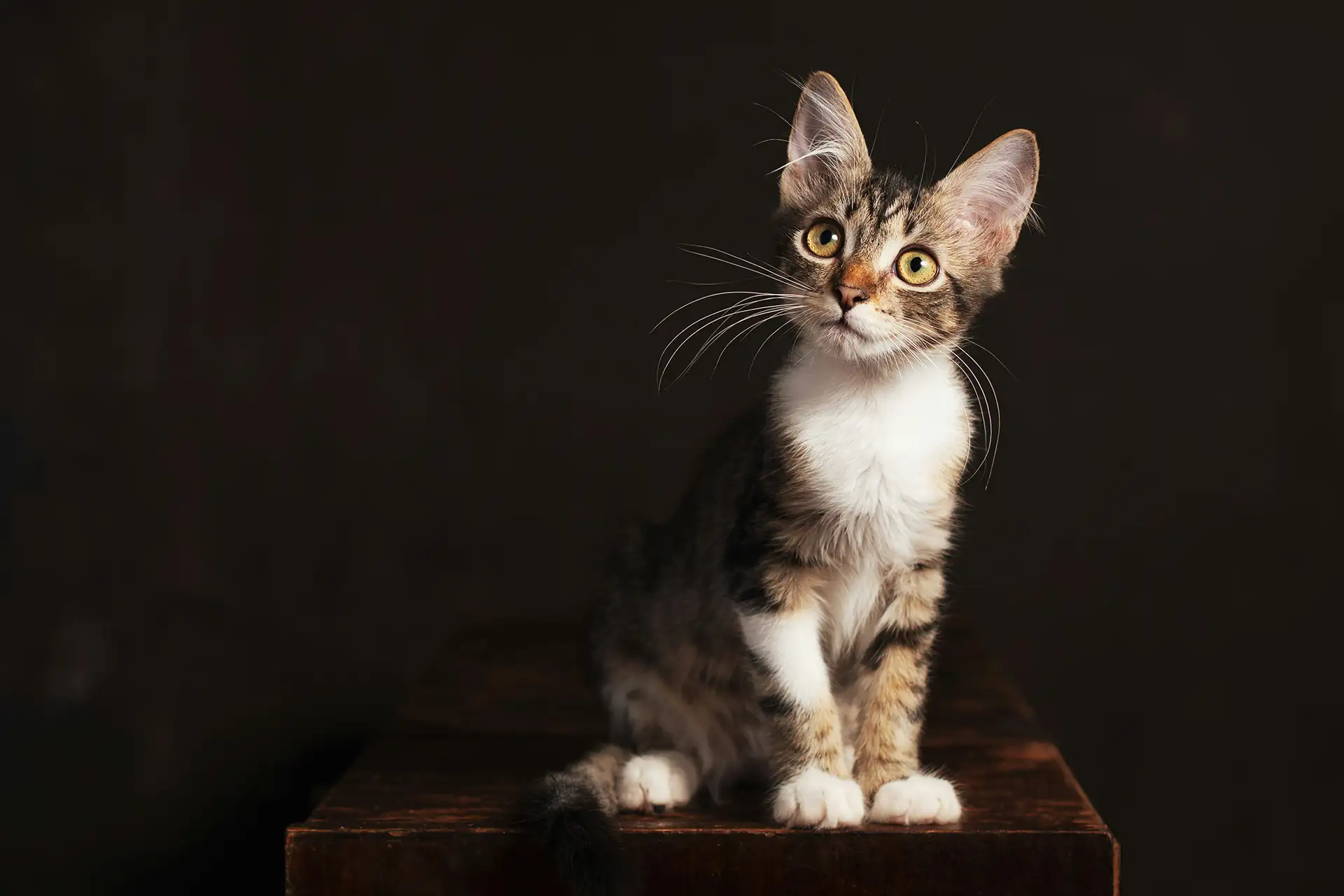For many cat owners, the litter box is just a practical necessity—but for your feline friend, it’s an important part of daily life that can make or break their comfort and bathroom habits. At All Cats Clinic, our knowledgeable veterinarians in Fayetteville, AR work with pet parents from across Northwest Arkansas to solve litter box issues and help create the perfect bathroom setup for every kitty.
Whether you’re welcoming a new kitten, caring for a senior cat, or troubleshooting litter box avoidance, understanding the basics of litter box selection, placement, and maintenance is key to keeping your cat happy—and your home clean.
Why the Right Litter Box Setup Matters
Cats are creatures of habit and cleanliness. A poorly chosen, improperly placed, or neglected litter box can quickly lead to accidents outside the box, stress, and even health problems. In some cases, litter box avoidance is the first sign of a medical issue, which is why prompt attention and veterinary evaluation are so important.
When the litter box meets your cat’s needs, it not only keeps them comfortable but also supports good hygiene, prevents stress-related behaviors, and helps you monitor their health.
Choosing the Right Litter Box
Not all litter boxes are created equal, and your choice should reflect your cat’s size, age, mobility, and preferences.
Size Matters
Your litter box should be at least 1.5 times the length of your cat from nose to tail base. A cramped box can make your kitty feel uncomfortable and may lead to avoidance.
Covered vs. Uncovered
-
Covered Boxes: Offer privacy and can help contain odors. However, some cats feel trapped or dislike the enclosed space.
-
Uncovered Boxes: Provide easy access and ventilation but may let more odor escape into the room.
Entry Height
-
High-Sided Boxes: Good for cats that kick litter around, but can be harder for seniors or arthritic cats to enter.
-
Low-Entry Boxes: Ideal for kittens, older cats, and those with mobility challenges.
Specialty Designs
-
Self-Cleaning Boxes: Convenient for some owners. However, not all cats like the noise or movement.
-
Corner Boxes: Save space in small rooms but can limit size and comfort.
Choosing the Right Litter
While many options exist, your cat’s preference should guide your choice. Sudden changes in litter type can cause stress, so transition gradually if switching.
Common Litter Types
-
Clumping Clay: Easy to scoop and popular with many cats.
-
Non-Clumping Clay: Less expensive but needs more frequent full changes.
-
Silica Gel Crystals: Absorb moisture and control odor well but may feel uncomfortable to some cats.
-
Natural/Plant-Based: Made from corn, wheat, or pine; biodegradable and often less dusty.
Tip: Avoid heavily scented litters, as cats’ sensitive noses may find them overpowering. Also, avoid using clay and clumping litters for kittens. Baby cats sometimes ingest litter, which can lead to dangerous intestinal blockages.
Want more info? Purina has a post on litterboxes, which you can read here. You can learn more about the do’s and don’ts of litterbox setups at the ASPCA website here. We also did an FAQ page on litterboxes, which you can find here.
How Many Litter Boxes Do You Need?
A good rule of thumb: One box per cat, plus one extra. Even in single-cat households, having multiple boxes in different locations can prevent accidents—especially in larger homes or multi-level houses.
Where to Place Litter Boxes
Placement can be just as important as the box and litter type.
The Do’s
-
Quiet, Low-Traffic Areas: Give your cat privacy and reduce stress.
-
Easy Accessibility: Especially important for kittens, seniors, or cats with health issues.
-
Separate from Food and Water: Cats prefer to keep their bathroom and dining areas far apart.
The Don’ts
-
Avoid placing boxes next to noisy appliances (like washing machines).
-
Don’t put them in tight, hard-to-reach corners that make a cat feel trapped.
In Fayetteville, AR homes—especially those with basements or multiple floors—it’s best to have at least one box on each level so your kitty doesn’t have to travel far.
Keeping the Litter Box Clean
Cats are fastidious creatures, and a dirty litter box is one of the most common reasons for avoidance.
Daily Care
-
Scoop waste at least once a day—more often for multi-cat homes.
Weekly/Biweekly Care
-
Completely change the litter and wash the box with mild, unscented soap. Avoid harsh chemicals that could leave residue or odors.
Monthly Care
-
Inspect the box for cracks or scratches where bacteria can hide. Replace boxes as needed.
Pro Tip: Using a litter mat outside the box can help reduce tracking and keep your home cleaner.
Litter Box Problems and How to Solve Them
Avoidance or Accidents
If your cat starts going outside the box, schedule a veterinary visit right away. Urinary tract infections, bladder stones, arthritis, and other health problems can cause discomfort that makes your cat avoid the box.
Marking vs. Elimination Issues
Spraying on vertical surfaces is usually marking behavior, often related to stress or territory disputes, while urinating outside the box on horizontal surfaces may indicate medical or box-related issues. It’s worth noting that cats who haven’t been fixed are much more likely to spray.
Multiple Cat Households
Some cats dislike sharing boxes. Providing enough boxes and placing them in separate areas can reduce competition and stress.
Special Considerations
Kittens
Need easy-to-access, low-entry boxes in quiet areas, with more frequent cleaning.
Senior Cats
May require low-sided boxes, softer litter, and closer proximity to their favorite resting spots.
Large Cats
Need oversized boxes to move and dig comfortably.
FAQs About Litter Boxes
How often should I replace the litter box itself?
Every 6–12 months, depending on wear and tear. Scratches and cracks can harbor odor-causing bacteria.
Can I use liners in the litter box?
Some cats dislike liners, as they can shift and feel uncomfortable under their paws.
Should I put all the boxes in one room?
No—spread them out to prevent crowding and territorial disputes.
Is toilet training a cat a good idea?
It’s not recommended, as it can make it harder to detect urinary issues and may be stressful for some cats.
Visit Our Fayetteville, AR Veterinary Clinic for Litter Box Help
The right litter box setup is essential for your cat’s comfort, hygiene, and overall well-being. If you’re searching for a vet near me in Fayetteville, AR, All Cats Clinic can help troubleshoot litter box problems, recommend the best products for your home, and ensure your feline friend’s bathroom habits support good health. Call us today to schedule your cat’s next wellness visit.
Visit our Service page here for more insight about our feline-only veterinary clinic and the services we offer.
This blog is meant to be informational only. Always consult with your veterinarian for the right medical advice, diagnosis, or treatment plan for your pet and follow their advice.






!Social Media Icons